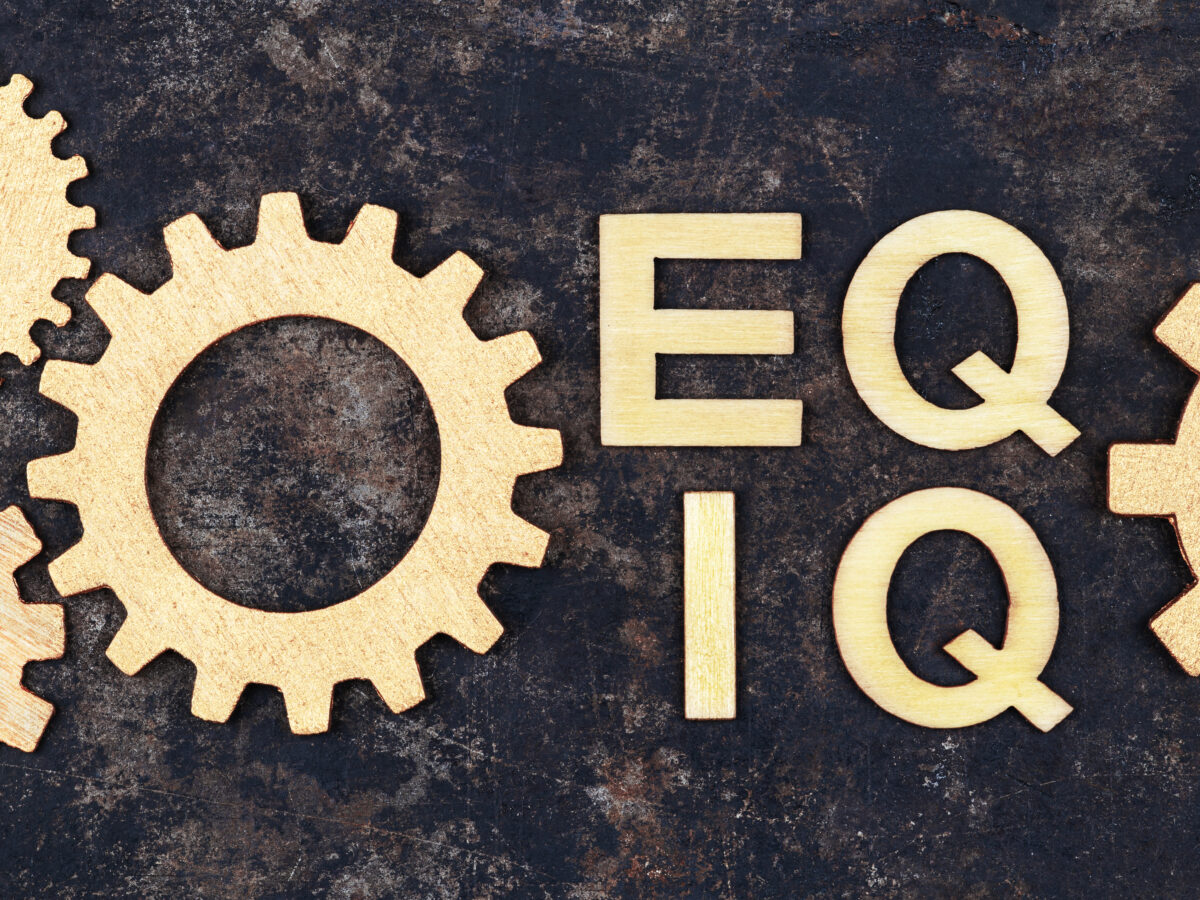In today's fast-paced and interconnected world, technical skills alone are not enough to thrive. Emotional intelligence (EI) has emerged as a critical determinant of success in both personal and professional realms. Defined as the ability to recognize, understand, and manage emotions—both our own and those of others—EI influences how we navigate relationships, communicate effectively, make decisions, and cope with challenges.
Understanding and enhancing emotional intelligence involves developing key competencies: self-awareness, self-regulation, empathy, and social skills. These components collectively empower individuals to build stronger connections, lead teams effectively, and achieve personal goals with resilience and empathy.
In this, we delve into practical strategies and insights aimed at enhancing your emotional intelligence. Whether you're looking to deepen your self-awareness, improve interpersonal relationships, or cultivate a more balanced approach to decision-making, investing in your EI can yield profound benefits.
By integrating these strategies into your daily life and professional endeavors, you'll not only enhance your emotional intelligence but also unlock new opportunities for personal growth and fulfillment. Join us on this journey to discover how embracing emotional intelligence can pave the way to greater success and well-being in every aspect of your life.
Understanding Emotional Intelligence
Emotional intelligence (EI) is a vital skill that influences how we perceive, understand, and manage emotions—both within ourselves and in our interactions with others. More than just a measure of empathy or social skills, EI encompasses a set of competencies that enable individuals to navigate complex social dynamics, make informed decisions, and achieve personal and professional success.
Key Components of Emotional Intelligence
Self-Awareness: The foundation of EI, self-awareness involves recognizing and understanding one's own emotions, strengths, weaknesses, and values. It allows individuals to accurately assess their feelings and how they impact their thoughts and behaviors.
Self-Regulation: This involves managing and controlling one's emotions, impulses, and reactions in constructive ways. Self-regulated individuals can adapt to change, handle stress effectively, and maintain a positive outlook even in challenging situations.
Empathy: Empathy is the ability to understand and share the feelings of others. It involves listening attentively, recognizing non-verbal cues, and appreciating different perspectives. Empathetic individuals build strong relationships, foster trust, and collaborate effectively with others.
Social Skills: Social skills encompass a range of abilities related to interpersonal interactions. These include effective communication, conflict resolution, leadership, teamwork, and influencing others positively. Individuals with strong social skills can build rapport, inspire and motivate others, and navigate social complexities with ease.
Importance of Emotional Intelligence
Developing emotional intelligence is essential for several reasons:
Enhanced Relationships: EI enables individuals to communicate more effectively, resolve conflicts diplomatically, and build deeper connections with others based on trust and mutual understanding.
Effective Leadership: Leaders with high EI can inspire and motivate their teams, manage emotions in high-pressure situations, and foster a positive organizational culture.
Improved Decision-Making: EI helps individuals make well-informed decisions by considering emotional factors alongside logical reasoning. This leads to more balanced and thoughtful choices.
Personal Well-Being: Individuals with high EI tend to have greater resilience, manage stress better, and maintain a positive outlook, contributing to overall mental and emotional well-being.
Cultivating Emotional Intelligence
Improving EI involves deliberate practice and self-reflection:
Self-Assessment: Start by identifying your emotional strengths and areas for improvement. Keep a journal to track your emotions and reactions in different situations.
Mindfulness and Meditation: Practice mindfulness techniques to increase self-awareness and regulate emotions. Meditation can enhance focus, reduce stress, and promote emotional clarity.
Active Listening and Empathy: Practice active listening to understand others’ perspectives fully. Cultivate empathy by putting yourself in others' shoes and considering their feelings and needs.
Continuous Learning: Engage in activities such as reading books on emotional intelligence, attending workshops, or seeking feedback from others to deepen your understanding and refine your EI skills.
Practical Strategies to Enhance Emotional Intelligence
Enhancing your emotional intelligence (EI) involves developing key skills that enable you to recognize, understand, and manage emotions effectively—both within yourself and in your interactions with others. By implementing practical strategies, you can cultivate greater self-awareness, improve interpersonal relationships, and make more informed decisions. Here’s how to enhance your EI:
Develop Self-Awareness
Practice mindfulness: Engage in mindfulness exercises such as meditation or deep breathing to become more aware of your thoughts, emotions, and physical sensations. Mindfulness helps you observe your internal state without judgment, enhancing self-awareness.
Journaling: Keep a daily journal to track your emotions, triggers, and reactions. Reflect on situations that evoke strong emotions and analyze how you respond. This practice fosters introspection and deepens your understanding of yourself.
Enhance Self-Regulation
Identify coping strategies: Develop healthy coping mechanisms to manage stress and regulate emotions. Techniques like progressive muscle relaxation, taking deep breaths, or taking a break to calm down can help you regain emotional balance.
Pause before reacting: In challenging situations, take a moment to pause and consider your response. This allows you to choose a thoughtful and constructive reaction rather than acting impulsively based on emotions.
Cultivate Empathy
Active listening: Practice active listening by focusing fully on the speaker without interrupting or formulating responses in your mind. Pay attention to non-verbal cues such as facial expressions and body language to better understand their emotions.
Put yourself in others' shoes: Develop empathy by imagining how others might feel in their circumstances. Consider their perspectives, feelings, and needs to build stronger connections and demonstrate genuine understanding.
Build Social Skills
Practice assertive communication: Communicate clearly, assertively, and respectfully in interactions with others. Express your thoughts and feelings openly while considering the perspectives of others.
Conflict resolution: Learn effective conflict resolution techniques such as active listening, seeking common ground, and focusing on solutions rather than blame. This fosters collaborative problem-solving and strengthens relationships.
Integrate Emotional Intelligence in Decision-Making
Consider emotional factors: When making decisions, take into account not only logical factors but also emotional implications. Reflect on how your decisions may impact yourself and others emotionally, aiming for choices aligned with your values and long-term goals.
Reflect on outcomes: Evaluate the emotional outcomes of your decisions. Reflect on how your emotional state influenced the decision-making process and the resulting consequences. Use this feedback to refine your approach in future decisions.
Continuous Learning and Feedback
Seek feedback: Request feedback from trusted friends, colleagues, or mentors about your emotional intelligence skills. Listen openly to their perspectives and insights, and use their feedback to identify areas for improvement.
Engage in learning activities: Invest in your EI development by reading books, attending workshops, or participating in EI-focused training programs. Continuous learning expands your knowledge and skills, supporting ongoing personal growth.
Practice Consistently
Daily rituals: Incorporate daily practices that enhance your emotional intelligence, such as mindfulness exercises, journaling, or setting aside time for self-reflection. Consistent practice reinforces new habits and strengthens EI skills over time.
Set goals: Establish specific goals for improving different aspects of your emotional intelligence. Monitor your progress regularly and adjust your strategies as needed to stay on track toward achieving your goals.

Benefits of Enhancing Emotional Intelligence
Enhancing your emotional intelligence (EI) goes beyond simply understanding and managing emotions—it significantly impacts various aspects of personal and professional life. By developing key EI skills such as self-awareness, self-regulation, empathy, and social skills, individuals can experience profound benefits that contribute to overall well-being and success. Here are the key benefits of enhancing emotional intelligence:
Improved Relationships: Enhanced EI allows individuals to better understand their own emotions and those of others. This understanding fosters deeper empathy and compassion, leading to more meaningful and fulfilling relationships. By recognizing and responding to others’ emotions effectively, individuals build trust, resolve conflicts constructively, and cultivate supportive networks.
Effective Communication: Effective communication is essential in personal and professional interactions. Individuals with high EI can articulate their thoughts and feelings clearly and assertively, while also being attentive listeners. They can adapt their communication style to different situations and audiences, facilitating better understanding and collaboration.
Conflict Resolution: Conflict is a natural part of relationships and workplaces. However, individuals with enhanced EI skills are better equipped to manage and resolve conflicts peacefully. They can remain calm under pressure, empathize with conflicting parties, and find mutually beneficial solutions. This ability minimizes misunderstandings, enhances teamwork, and promotes a positive work environment.
Enhanced Leadership Skills: Effective leadership requires more than technical expertise—it demands strong emotional intelligence. Leaders with high EI inspire and motivate their teams, foster a culture of trust and open communication, and handle challenges with resilience and empathy. They can understand the emotions and motivations of their team members, making them more adept at guiding others toward shared goals.
Stress Management: EI enables individuals to manage stress more effectively by regulating their own emotions and maintaining a positive outlook. They can identify stress triggers, implement coping strategies, and bounce back from setbacks with greater resilience. This ability to handle stress contributes to overall mental and emotional well-being.
Improved Decision-Making: Emotional intelligence plays a crucial role in decision-making processes. Individuals with enhanced EI can weigh emotional factors alongside logical considerations when making choices. They are more adept at anticipating potential outcomes, considering the perspectives of others, and making decisions that align with their values and long-term goals.
Personal Growth and Resilience: Developing EI fosters personal growth and resilience. Individuals become more self-aware, identifying areas for improvement and actively working on self-development. They embrace challenges as opportunities for learning and growth, adapt to change more easily, and maintain a positive attitude even in difficult circumstances.
Career Success: EI is increasingly valued in the workplace as a critical skill for career advancement. Individuals with high EI often excel in leadership roles, build strong professional networks, and are sought after for their ability to navigate complex interpersonal dynamics and drive organizational success.
Conclusion
In conclusion, enhancing your emotional intelligence (EI) is not just about understanding emotions—it's about leveraging this understanding to enrich every aspect of your life. By cultivating self-awareness, self-regulation, empathy, and social skills, you open doors to deeper connections, improved communication, effective conflict resolution, and resilient leadership.
The benefits of developing EI ripple through personal relationships and professional endeavors alike. You become better equipped to navigate challenges with grace, manage stress effectively, and make decisions that align with your values and goals. Moreover, investing in your EI fosters continuous personal growth, enhancing your ability to adapt to change and thrive in diverse environments.
As you embark on this journey of self-discovery and skill development, remember that building emotional intelligence is a lifelong process. Embrace each opportunity to learn and practice these skills, whether through mindfulness exercises, reflective journaling, seeking feedback, or engaging in meaningful conversations. Every step you take towards enhancing your EI brings you closer to a more fulfilling and successful life.
Ultimately, by prioritizing emotional intelligence, you empower yourself to lead with empathy, inspire others, and create a positive impact on the world around you. Embrace the power of emotional intelligence, and watch as it transforms your relationships, career, and overall well-being.
Related Articles:
Building a Morning Routine for Success
The Power of Positive Affirmations
The Importance of Self-Reflection in Personal Growth
Overcoming Self-Doubt: Strategies for Success
The Importance of Self-Care in Managing Depression: Tips and Online Resources



